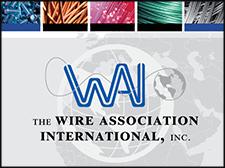HORIZON ADDS METAL COATINGS TO ITS PORTFOLIO OF 3D MICROFABRICATION TECHNOLOGIES
The technologies are especially suited as a post-printing treatment for micro-AM derived templates, and today Horizon is excited to announce that in addition to providing coatings that add conductivity and environmental resistance, it is now also able to add copper metal coatings to polymer micro-AM and other micro structures.
(3rd May 2023, Karlsruhe, Germany) Horizon Microtechnologies recently launched a suite of in-house processes that add material and functionality to a microstructure, all developed to work with a range of template materials and template shapes. Effectively, the company produces parts from a template, but its technologies make the final parts so much more functional than the original template in a variety of ways.
The technologies are especially suited as a post-printing treatment for micro-AM derived templates, and today Horizon is excited to announce that in addition to providing coatings that add conductivity and environmental resistance, it is now also able to add copper metal coatings to polymer micro-AM and other micro structures. This means that for the first time, companies can produce parts with the functionality of copper but also exploit the design freedom, precision and resolution achievable through micro-AM.
Andreas Frölich, CEO at Horizon says, "Our initial focus is on copper coatings, as this opens up an array of application possibilities for companies wishing to add functionality to micro-AM templates. Copper coatings can offer significant benefits for microfabricated or micro-additive manufactured parts, but there are several challenges and problems associated with current coating solutions that Horizon has addressed to ensure the successful application of the copper. We have carefully optimized the coating process, materials, and deposition parameters, and have overcome these challenges to harness the full potential of copper coating which can now be applied reliably, cost-effectively, and speedily, making it viable for a whole range of applications."
The addition of copper coatings to micro-AM or other 3D microfabricated templates can offer numerous advantages, most importantly improved electrical and thermal conductivity.
However, when working with 3D polymer templates, existing copper coating technologies are challenged by issues like non-uniform deposition of the copper, adhesion of the copper to the substrate, low deposition rates or achieving deposition at all.
Frölich continues, "Any technique for deposition of copper coatings requires precise control over process parameters, for example, temperature, pressure or flow rates, to achieve uniform and defect-free coatings. This can be particularly challenging when working with complex part geometries, and again is an area where Horizon has focused its efforts. One of the key reasons why companies seek to use micro-AM parts is because micro-AM opens up design freedom and allows the creation of complex geometries, and so any copper coating technology must be agnostic to complexity in order to be attractive for use with micro-AM parts. Ultimately customers come to Horizon looking for parts."
Horizon's coatings are typically in the 1-2 micron thickness range, which is sufficient for many applications. Importantly, the company's process can also coat internal channels and undercuts to some degree, the channel's aspect ratio being the limiting factor now rather than the absolute length. This is a huge advance for copper coating of micro-AM templates.
For the first time through Horizon's technology, the functional advantages of copper can be married with the design flexibility of micro-AM. The technology is ideally suited to the very many applications where the use of bulk copper is not required and would be technically impossible or uneconomic. Making geometries via polymer AM not possible through the use of bulk copper, and then adding the functionality of a copper coating is therefore highly disruptive.
Frölich concludes, "With our processes, industry can now access a reliable way to coat three-dimensional micro-AM and other microfabricated templates with copper. Copper coatings can significantly improve the surface properties of micro fabricated parts by adding wear resistance, lubricity, and hardness. The most important use case for the coatings is when highly conductive surfaces are required. Again, of significant importance, (and if designed well) our copper coating can be used not just to coat an entire micro-part, but to selectively coat features on a given template, creating several independent metal features for interconnects, vias, etc. . Selective metallisation has more constraints than uniform metallisation, and so we will happily work with customers to ensure part design is optimised for the process. We look forward to working with interested parties to prove the effectiveness of our copper coating technology, and overcoming preconceptions concerning problems with alternative existing solutions."
The key application areas for copper coated micro-AM and microfabricated templates are those that require high precision, complex geometries, and advanced materials properties, such as high electrical conductivity,. As such, opportunities exist in the production of micro-electronic devices such as free-form printed circuit boards, interposers and interconnects; micro-sensors; miniaturized biomedical devices (such as implantable sensors); drug delivery systems; lab-on-a-chip systems, micro-reactors, and microfluidic sensors; and MEMS actuators and transducers.
www.3dmicrofabrication.com
Featured Product

